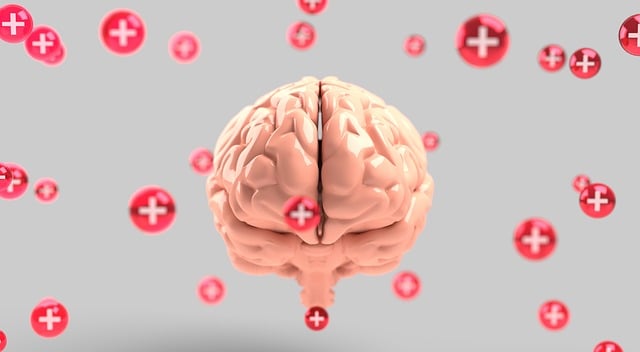Adolescent mental health faces unique challenges like peer pressure, academic stress, and identity issues, which can lead to anxiety, depression, and low self-esteem. Psychological Testing serves as a vital tool, identifying strengths and struggles for tailored therapy focused on resilience building and compassion cultivation. Mindfulness meditation enhances emotional well-being through coping mechanisms and stress management. Personalized self-care plans, integrating cultural sensitivity, combine relaxation techniques, creative pursuits, exercise, balanced diets, and adequate sleep to improve mental health. Regular check-ins and a supportive network are crucial for maintaining these routines, leading to long-term mental wellness for therapy for adolescent teens.
In today’s fast-paced world, self-care is paramount, especially for adolescents navigating complex mental health landscapes. Understanding the unique needs of teenage minds is crucial for fostering resilience and overall well-being. This article explores the benefits of psychological testing for teens, providing insights into tailoring effective self-care plans. We delve into strategies to integrate and maintain healthy habits, including therapy techniques designed specifically for adolescent teens, empowering them to thrive in a challenging environment.
- Understanding Adolescent Mental Health Needs
- Benefits of Psychological Testing for Teens
- Creating a Personalized Self-Care Plan
- Strategies to Integrate and Maintain Healthy Habits
Understanding Adolescent Mental Health Needs

Adolescent mental health is a unique and critical phase that requires tailored understanding and support. Teens often face a myriad of challenges as they navigate through their formative years, including peer pressure, academic demands, identity formation, and emotional shifts. These factors can contribute to various mental health issues such as anxiety, depression, and low self-esteem. Recognizing these needs is the first step towards fostering healthy development.
Psychological testing plays a vital role in identifying potential struggles and strengths. Through specialized assessments, professionals can offer targeted therapy for adolescent teens, focusing on resilience building and compassion cultivation practices. Additionally, mindfulness meditation has gained prominence as an effective tool to enhance emotional well-being. By incorporating these strategies, teens can develop coping mechanisms, improve their ability to manage stress, and cultivate a deeper sense of self-compassion.
Benefits of Psychological Testing for Teens

For teenaged individuals navigating the complexities of adolescence, Psychological Testing offers a valuable tool for understanding their mental wellness and personal development. This process goes beyond a simple assessment; it’s a gateway to tailored therapy and personalized support for Adolescent Teens. By evaluating various aspects of their emotional, cognitive, and behavioral functioning, professionals can identify strengths and areas requiring attention, paving the way for effective interventions.
Psychological Testing plays a pivotal role in the development of Mental Wellness Coaching Programs designed specifically for teens. These programs, coupled with Healthcare Provider Cultural Competency Training and robust Risk Management Planning for Mental Health Professionals, ensure that young individuals receive comprehensive care. This approach promotes not just the management of existing issues but also empowers teens to build resilience, enhance coping strategies, and foster overall mental wellness, setting them up for success in their personal and professional lives.
Creating a Personalized Self-Care Plan

Creating a personalized self-care plan is an empowering step toward improving overall well-being. It involves understanding one’s unique needs and incorporating tailored strategies to enhance mental, emotional, and physical health. This process begins with introspection and self-assessment. Individuals can start by reflecting on their daily routines, stress triggers, and past experiences through self-awareness exercises. Identifying patterns and areas for improvement is crucial in this phase. For instance, someone might realize they consistently feel overwhelmed after school due to academic pressures, which could prompt them to seek crisis intervention guidance or develop specific coping mechanisms.
A comprehensive self-care plan should be holistic, addressing various aspects of life. This may include setting aside dedicated time for relaxation and activities that foster mental clarity, such as meditation or engaging in creative pursuits. Additionally, incorporating physical exercise, maintaining a balanced diet, and ensuring adequate sleep are essential components. For adolescent teens, integrating cultural sensitivity in mental healthcare practice can make these plans more effective. Considering individual backgrounds and beliefs can lead to more personalized and inclusive self-care strategies, ultimately improving the effectiveness of any subsequent psychological testing.
Strategies to Integrate and Maintain Healthy Habits

Developing a consistent self-care routine is a powerful tool for improving mental health, especially for adolescent teens navigating life’s challenges. Integrating healthy habits requires intentionality and adaptability. Start by identifying key areas that need attention—be it stress management, physical activity, or social connections. For instance, establishing a daily exercise routine can significantly boost mood and reduce anxiety. Incorporate activities like yoga, meditation, or even brisk walking to suit individual preferences.
To maintain these practices, teens should consider combining strategies such as therapy for adolescent teens alongside psychological testing to gain insights into their emotional well-being. Regular check-ins with mental health professionals can help identify potential risks and provide guidance on adapting self-care routines. Whether it’s setting reminders, involving friends or family, or joining support groups, building a supportive network is essential. Consistency is key; making these practices part of one’s daily or weekly schedule ensures their longevity, contributing to overall mental wellness.
Improving self-care practices is a journey that can significantly benefit adolescent mental health. By understanding unique mental health needs, leveraging the insights from psychological testing, and creating personalized care plans, teens can develop healthy habits that enhance their overall well-being. Integrating strategies like therapy into daily routines ensures sustained progress. With dedicated effort, adolescent teens can navigate life’s challenges more effectively, fostering resilience and a brighter future.









